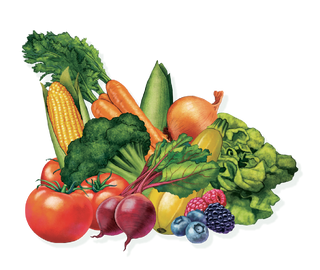Seed Starting V; What's in The Bag? Compost? What Kind? Plus: Dahlias & Pine Straw & Mulch; oh My!
"It is my understanding that a seed starting mix can be superior for a tiny or slow to germinate seed. Do I need a seed starting mix to start larger faster seeds, like zinnia or tomatoes? Or if I have the space should I start them in 4" pots of potting mix or compost? They certainly seem to love being potted up into a mix of compost and potting soil. Please help me understand when to use potting soil, compost, and soil amendments."
A. I went back to the 1990s to double check my stance on this subject, and I and my fellow editors at ORGANIC GARDENING magazine all agreed that the best way to START (that is, germinate) seeds is in a professional seed starting mix and perlite. Mixing compost in before the starts are up seemed to delay germination.
Q. Tara in Atlanta continues: "My eyes have finally been opened to the fact that the big brand potting soils at the big box stores (Miracle Grow) aren't a fantastic product. I've been watching YouTube videos on dahlias and a couple of British growers fill their pots with straight "compost". I do understand that potting soil doesn't contain any soil, but can I or should I grow a plant in straight compost? I've been mixing compost (mushroom or cow), worm castings, & bone meal into my potting mix and into holes in the ground."
A. Composted cow manure is NOT compost; it is dried manure collected at large dairy farms. I suspect that most if not all of it comes from factory farms, where the animals are treated poorly. My old friend Andy Weil MD and I were having dinner with a small group attending the same botanical conference and someone asked the food wise Dr. Weil, "what's the worst food you can eat?" Andy immediately shot back: "Anything cooked by an angry person." Likewise, I would never use manure from a distressed animal; not to mention the antibiotics and growth hormones they've been pumped up with.
Mushroom soil is tricky. If it didn't come from an organic mushroom farm, it's likely to be loaded with herbicides (to prevent green plants from arising thanks to the seeds in the horse manure that is its main component.) Fresh mushroom soil (right out of the growing house) will burn your plants; if it's hot, use it NOT! Mushroom soil is not exactly compost, but if it's allowed to age until it no longer has any smell or heat, it makes a nice top dressing for your plants.
Bone meal is fine, but reserve that until planting time and pour it on TOP of the root ball before you fill in the hole to provide calcium, which is essential for tomatoes (or else you'll get the blossom end rot; your tomatoes might get it too).
Crazy British gardeners. They have a lot of tricks up their sleeves, having been at this game a lot longer than us detached Americans. Dahlias are tropical tubers that have to be stored indoors in climes with cold winters; and many gardeners plant them in pots and hanging baskets to make this chore easier. But now we're back to the eternal question: what kind of compost? What were the raw ingredients? That said, I would be comfortable planting dahlias (and tuberous begonias) in close to 100% percent compost, plus some perlite, especially if they're not in the ground. Cold, wet soil can doom dahlias.
And finally, Tara from Atlanta leads us down this week's final rabbit hole.
Q. "I continue to search for a mulch I really like. Pine straw still looks funny to this gal raised in the prairies. Wood chips aren't great to have next to the base of the house. The pine bark I tried this fall had huge pieces that don't seem to be breaking down. I heard someone say they "mulch" with a "soil amendment" to improve their soil, retain water, and reduce weeds, specifically the type that looks like super fine bark mulch. Is this something you recommend trying? What is your mulch recommendation?"
A. "Mulch" does not refer to any specific substance, although the purveyors of chipped-up insecticide-soaked pallets from China that have been spray-painted some God-awful color would have you believe that their trash wood is the official 'mulch'. Thanks to 'Monkey-See; Monkey-Do', it has become ubiquitous, but this worse than useless product does not belong in anyone's landscape, especially rotting the base of trees in the popular but completely incomprehensible "volcano style". On a scale of one to ten, dyed mulch gets a zero.
The best mulches are shredded fall leaves (a ten), the pine straw that Tara from the prairie thinks 'looks funny', despite it being THE mulch of the South (another ten) and compost (10), which prevents weeds just as well as an equal layer of poisonous wood chips.
And finally, NO mulch should be up against the house. Keeping the soil moist near the foundation is an engraved invitation for termites to move in.

